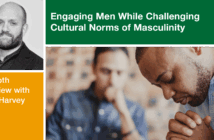Being missional does not mean doing things the way we like them. It means to take the gospel into the context where we have been called … and, to some degree, to let the church take the best shape that it can in order to reach a specific culture. However, the problem is our preferences. You can’t be missional and pick what you like at the same time.
Churches become so tied to practicing their own preferences that they become the main goal, not the glorification of God within the culture where they are found.
We prefer some forms of music. We desire certain church organizational structures. We would like specific outreach plans. Simply put, we have certain things that we like. That is not a problem when our preferences line up with the missional choices for our community. The problem occurs when they do not. That situation requires a change of heart and the willingness to set aside our preferences.
That is not just an issue within churches. It is often an issue with church leaders. Many times we think that the people within the church do not understand the culture. Sometimes they understand the culture better than we do! We often rush off to the next best conference of the month and come home and announce that this new model is the key to reaching our community. The people respond with, “That won’t work here!” At that point, we assume that they are expressing a lack of faith. Often it just means that they have a better pulse on the community than we do. They think they know which kind of music, discipleship plan, outreach strategy, etc., will not work … and they are often correct.
On the other hand, churches are not always good barometers of the “outside” culture. Over time, a church culture develops that is separate from the broader culture, and soon it can no longer effectively understand the context around it. Churches become so tied to practicing their own preferences that they become the main goal, not the glorification of God within the culture where they are found. Rather, it is the glorification of God in a way that we find comforting and comfortable.
Many prefer not to worry about what people on the outside think, but just to take care of their needs and preferences. Scripture teaches that we are to “consider others better than yourselves” (Phil. 2:3). This includes the truth that our preferences should never become more important than what our church needs to be and do missionally. For that matter, the church’s focus should not be the preferences of other church members either. A truly biblical church will ask, “What will it take to transform this community by the power of the gospel?” not “How many hymns do we have to sing to make everybody happy?”
We find it intriguing to observe churches that are led by pastors with their own preferences (usually for the church to be more contemporary) who try to implement their preferences within existing churches (who have their own traditional preferences). They fight, they argue, people leave the church, and pastors even lose their jobs.
Churches must move beyond personal preferences into missional thinking. Or they must find a place where missional expression of church lines up with their personal preferences. The problem with finding a place to live out our preferences is that we are ministering on the basis of the very thing that will change: the culture around us.
Moving beyond preference requires a new motivation and outlook. More and more North American church leaders are finding the ability to move beyond preference in the tools of missiology.
Before anything that is truly of God can be born, your own preferences have to die. Your desire to lead a contemporary/traditional/emerging/
casual/formal/whatever church has to be laid on the altar and sacrificed in order to receive Christ’s call and mission to this community. That is what Jesus meant when he said to his disciples in Luke 9:23, “If anyone would come after me, he must deny himself and take up his cross daily and follow me.”
Are you willing to die to your preferences so the people in your community can be reached with the gospel? Is your church willing to move out of its Christian subculture and relate to its community? Is it possible that you and your church are missing out on some of the blessings of the gospel because you have been unwilling to die to yourself and your preferences?
This article is adapted from David and Ed’s book, Breaking the Missional Code: Your Church Can Become a Missionary in Your Community (Broadman & Holman), © 2006 Ed Stetzer and David Putman, used by permission.






